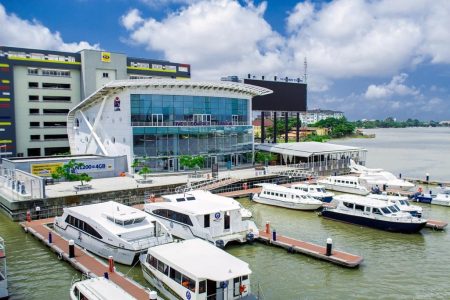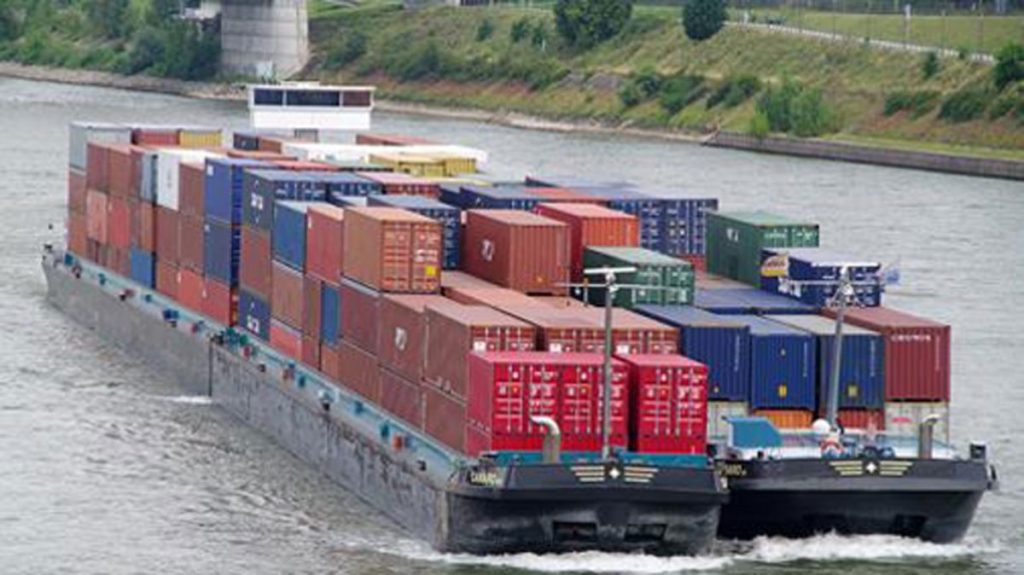Vincent Toritseju
Lagos — The Nigerian Ports Authority, NPA has commissioned a new export processing terminal, the Diamond Star Export Processing Terminal, with a view to boosting the earnings of foreign exchange and eliminate undue delays of Nigerian export products abroad.
Speaking at the commissioning ceremony at the Lilypond Ijora, Lagos, Managing Director of the NPA, Mohammed Bello-Koko, Tuesday, said that the terminal as a pre-gate for processing all export-bound containers entering Lagos ports is a demonstration of the premium the agency places on the speedy and prioritized handling of export cargoes in its bid to make Nigerian exports competitive in the global marketplace.

Bello-Koko said, “This initiative signposts the NPA’s commitment to the implementation of the National action plan on agro-export and the Federal Government of Nigeria’s desire to diversify the national economy from oil export to non-oil exports.
“The authority is by this move positioning to infuse greater efficiency into the logistics surrounding the entry of export boxes into the ports and the eventual loading on sea-going vessels.
“The launch of this and other terminals also strategically positions Nigeria to optimize the advantages of the benefits inherent in the African Continental Free Trade Area (AFCFTA) Agreement.
“The need for the Export Processing Terminals (EPTs) is underscored by the limitations of current port facilities in the Lagos area which are operating beyond their ‘as built capacity’ for cargo handling.
“The EPTs are therefore holding areas, positioned in Lagos and Ogun States to help exporters prepare their arrival at port terminals in view of the traffic management challenges that are visible in Lagos.
“The Nigerian Export Promotion Council (NEPC) has served as our technical partner through this journey for which we are truly grateful. We are also currently working to integrate the CBN NXP into the e-call-up regime and have progressed on the discussion to operationalize the same using the electronic call-up as the gateway.
“As we can all see, the Comptroller General Nigeria Customs Service in response to the request by the Authority has graciously established an Export Command to support the Federal Government efforts in this regard.
“We are also currently working to integrate barge and train movements to complete the circle in collaboration with Nigerian Customs.
“The NPA is not unaware of the existence of export warehouses handling manufactured products. We will work with the NCS export command to bring up seamless modalities that will govern this aspect.
“For our Terminal Operators, Shipping Companies and other stakeholders, you have been fully briefed on the procedure for ensuring the success of the Federal Government National Action Plan Agro–Export development in the country. You have a responsibility to ensure strict compliance in this regard.”
The Zonal Coordinator of Zone A, ACG Adeyanju Aremu while speaking on behalf of the Comptroller General of the Nigeria Customs Service, revealed that the service headquarters has set up an export command to ensure that agro-based exports are given utmost attention.
“Comptroller Babandede has been posted here to ensure the success of this new facility. We at the Nigeria Customs Service are confident that the export processing terminals will serve the purpose for which it was established. The motive behind the setting up of the facility is to eradicate delays associated with our export cargoes, and with the team posted here by the Customs headquarters and expected collaboration from stakeholders, we expect this initiative to be a success,” Aremu said.
Also speaking, the Managing Director of Diamond Star Export Processing Terminal, Olatunji Baale said, “We are bringing competence, capability, prompt service and continuous engagement with our customers. Our target is to ensure quicker delivery of export boxes on vessels to reduce the rejection of Nigerian cargoes abroad. All the necessary agencies of government are here and with massive and continuous investment from us, we hope to reduce the in-balance in the import-export gap.”
Follow us on twitter



